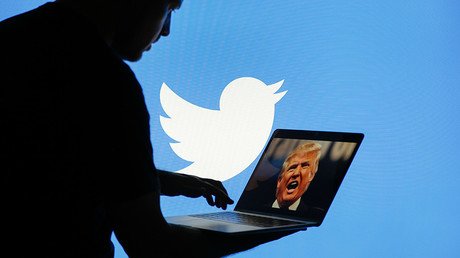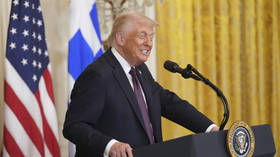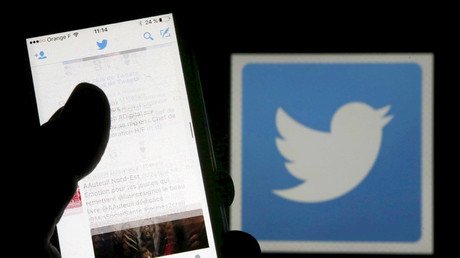Twitter ‘shadow bans’ undesirable voices, censors free speech – Project Veritas exec to RT
Undercover footage of Twitter staff appearing to admit to silencing conservatives shows the social media platform is not the open public forum it presents itself to be, Project Veritas executive director Russell Verney tells RT.
“We’re giving away an awful lot to these companies, but when they come out and publicly say they want to be the public forum for free speech, yet they’re censoring free speech and they are slanting what free speech can or can not be heard, then there’s a problem,” Project Veritas executive director Russell Verney told RT on Thursday.
Under its terms of service, Verney said Twitter has rights to all content, deleted tweets, and metadata associated with users, which means when and where they are posting.
There were no specific plans before launching the undercover investigation into Twitter, Verney said, but he did acknowledge Project Veritas journalists “deception” to catch subjects in candid moments.
He said Project Veritas journalists may stake out subjects at bars and become friends with them, or the company may set up fake websites recruiting employees from certain companies, then interview them posing as recruiters. Verney told RT that Project Veritas has never issued a retraction or presented video out of context.
On Thursday, Project Veritas founder James O’Keefe released undercover footage of current and former Twitter staff who appear to admit to silencing conservative voices using a “shadow banning” algorithm. “Shadow banning” is the act of blocking a user or their content from reaching a wider audience without their knowledge.
One of the video clips shows an undercover Project Veritas journalist talking to Pranay Singh, a direct messaging engineer at Twitter. In the clip, Singh explains how shadow banning works and also says the majority of users targeted by algorithms he uses are fans of President Donald Trump.
“Yeah you look for Trump, or America, and you have like five thousand keywords to describe a redneck. Then you look and parse all the messages, all the pictures, and then you look for stuff that matches that stuff,” Singh said of the algorithm.
Another piece of footage released shows Twitter software engineer Steven Pierre discussing how Twitter uses censorship algorithms against users.
“Every single conversation is going to be rated by a machine, and the machine is going to say whether or not it’s a positive thing or a negative thing,” Pierre said. “It’s going to ban a way of talking.”
Twitter has responded to a previously released video by Project Veritas, which shows one of its undercover journalists talking with Clay Haynes, a senior network engineer for Twitter. Haynes did not know he was being filmed. He told the journalist: “We’re more than happy to help the DOJ with their little investigation” of Trump.
Haynes made the comment in relation to the ongoing US Department of Justice investigation into alleged ties between Trump and Russia during the 2016 presidential campaign.
A spokesman for Twitter responded to the video clip on Thursday by saying: “Twitter only responds to valid legal requests, and does not share any user information with law enforcement without such a request,”Fox News reports.
















